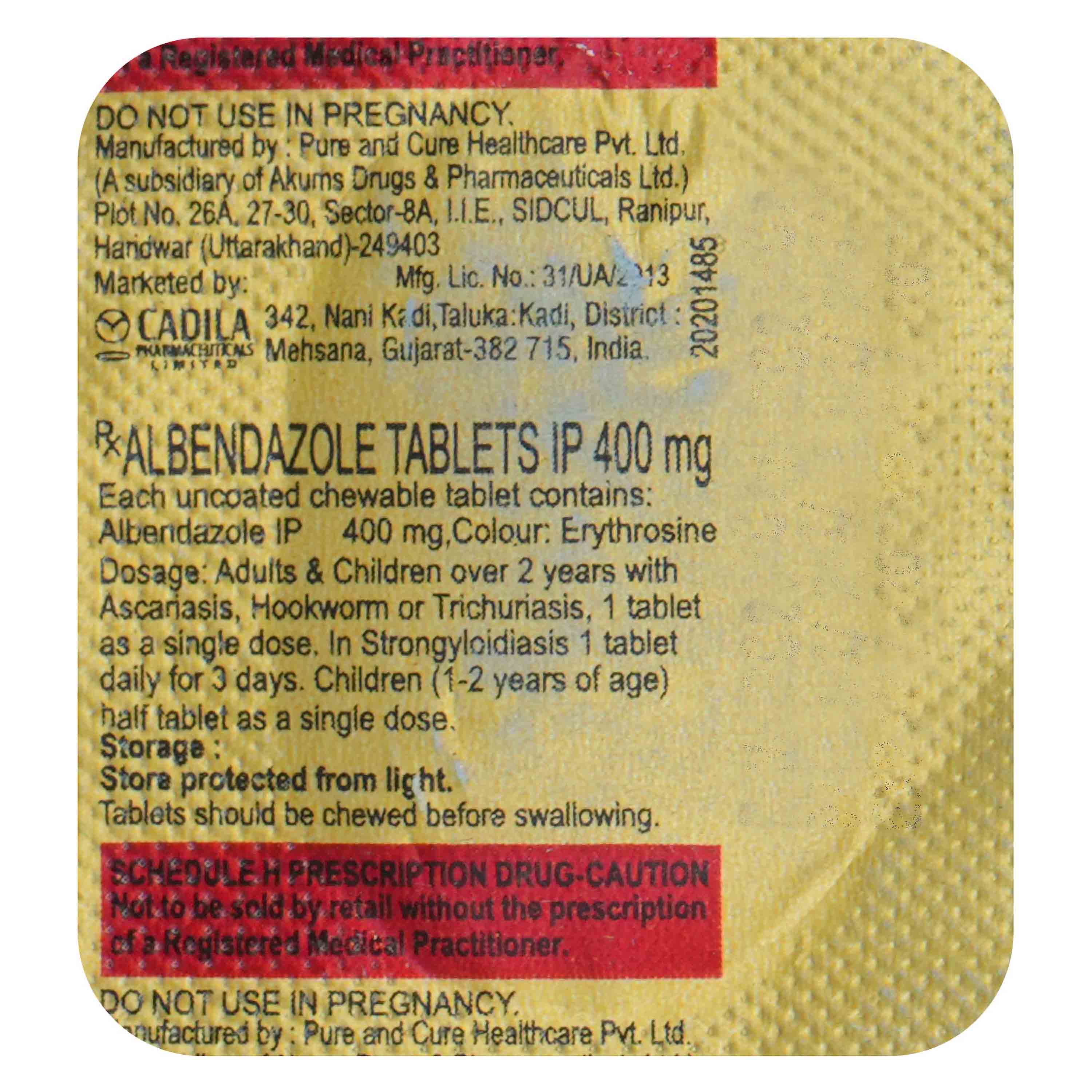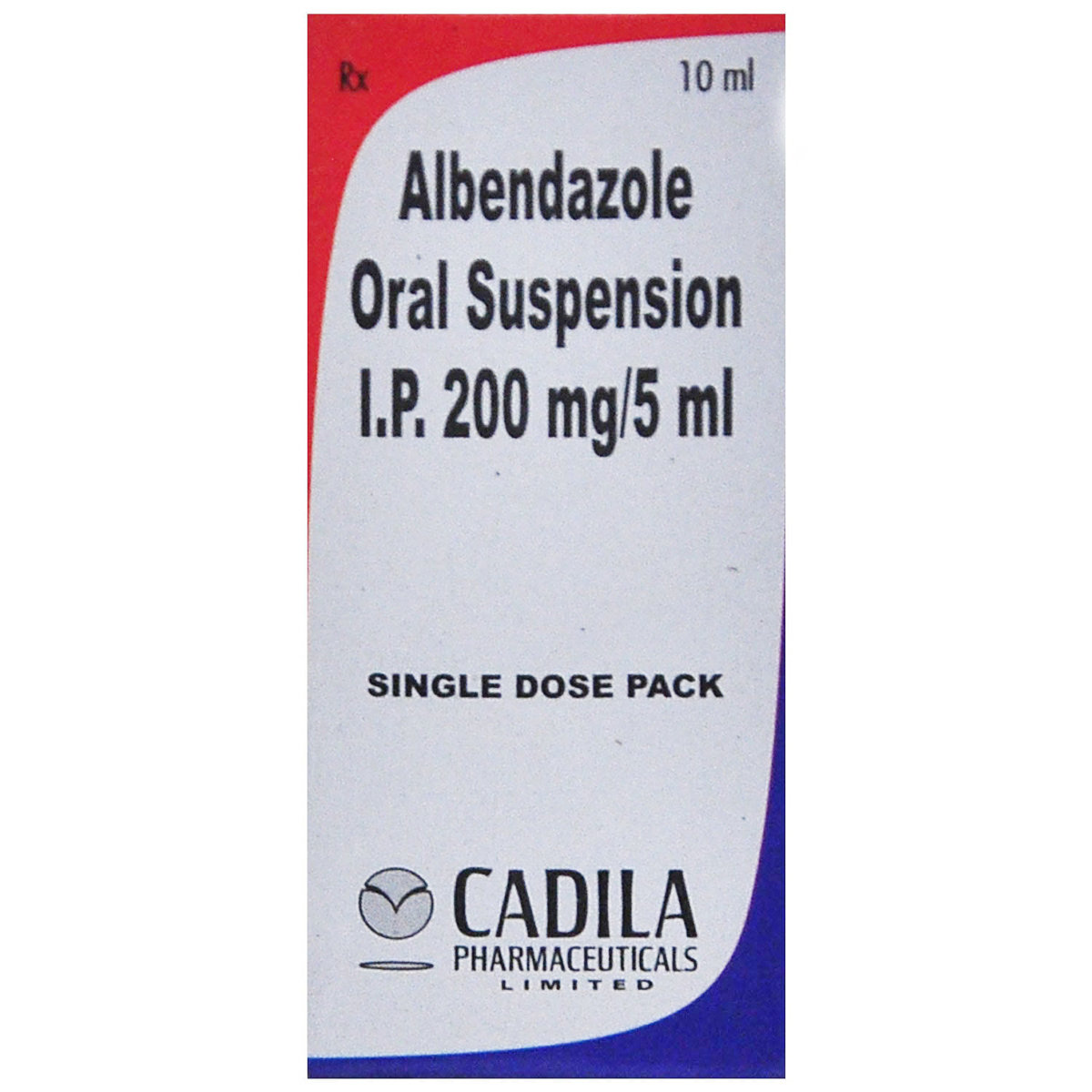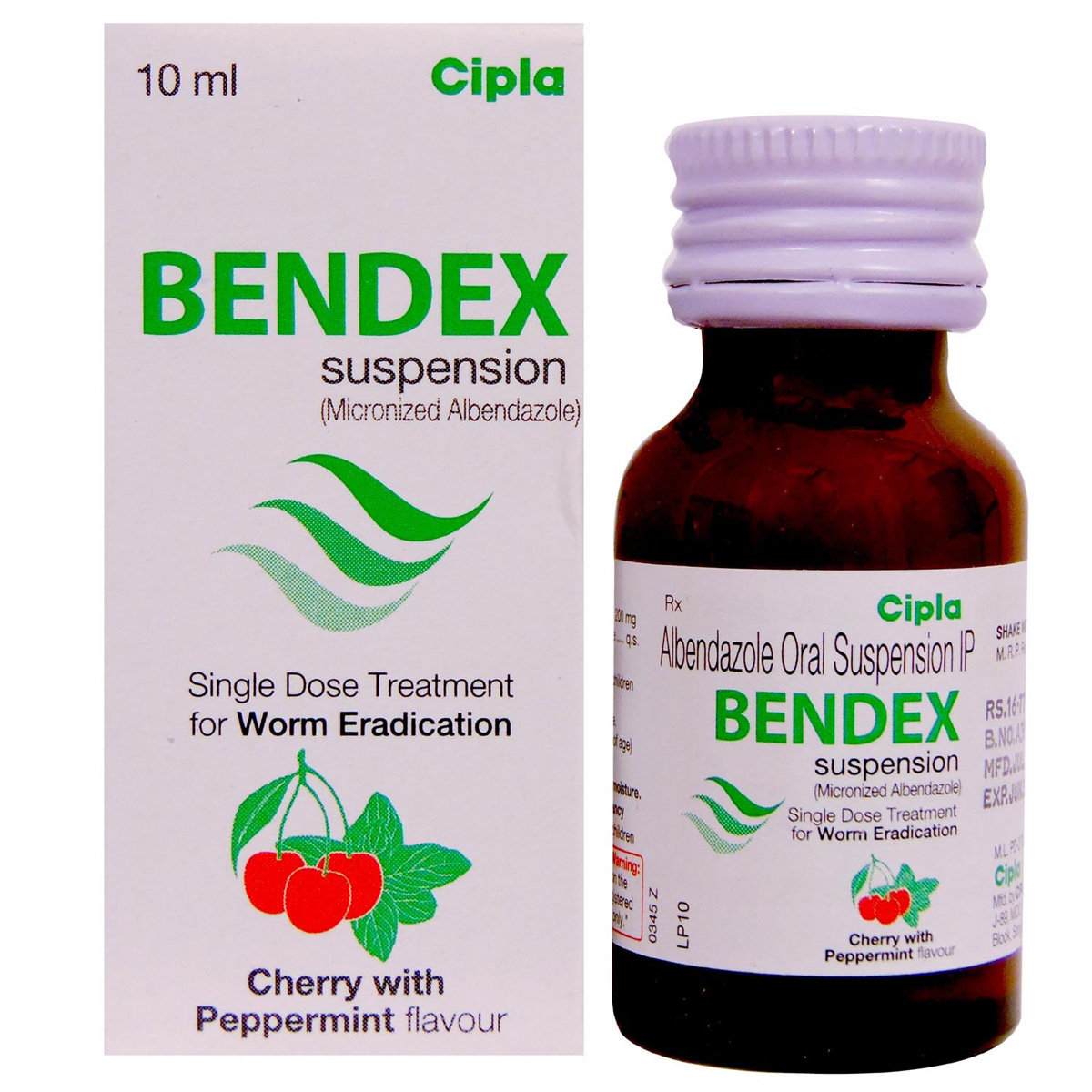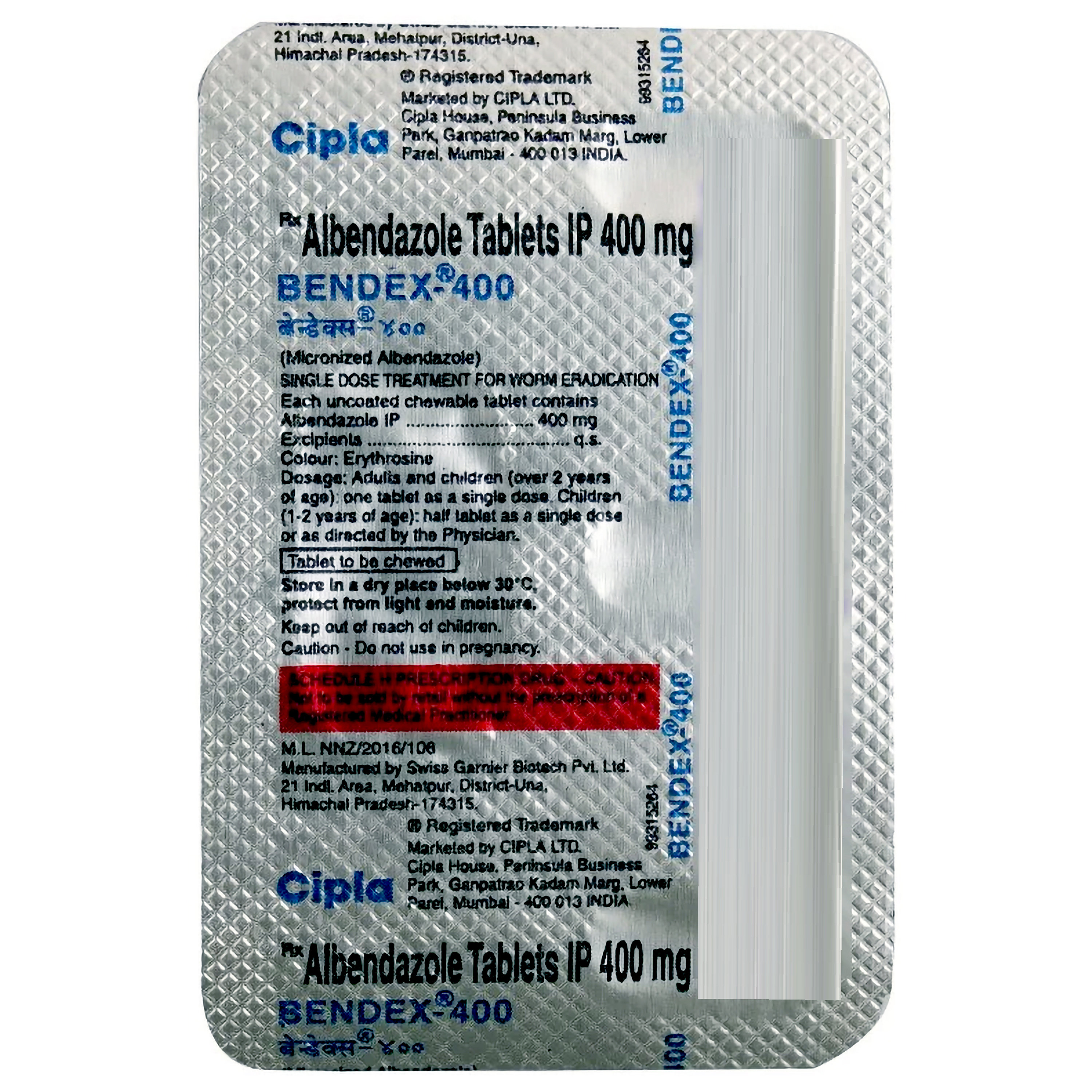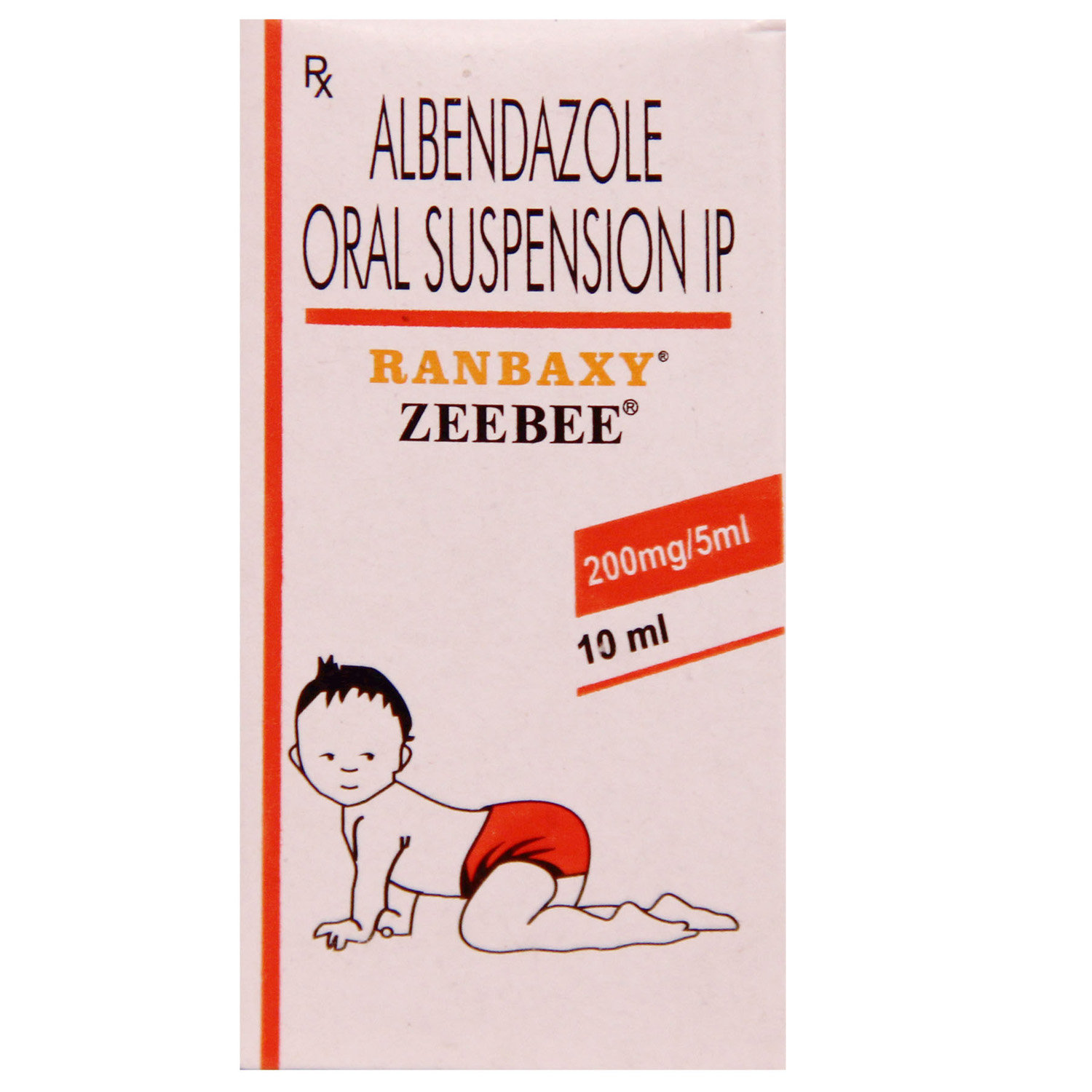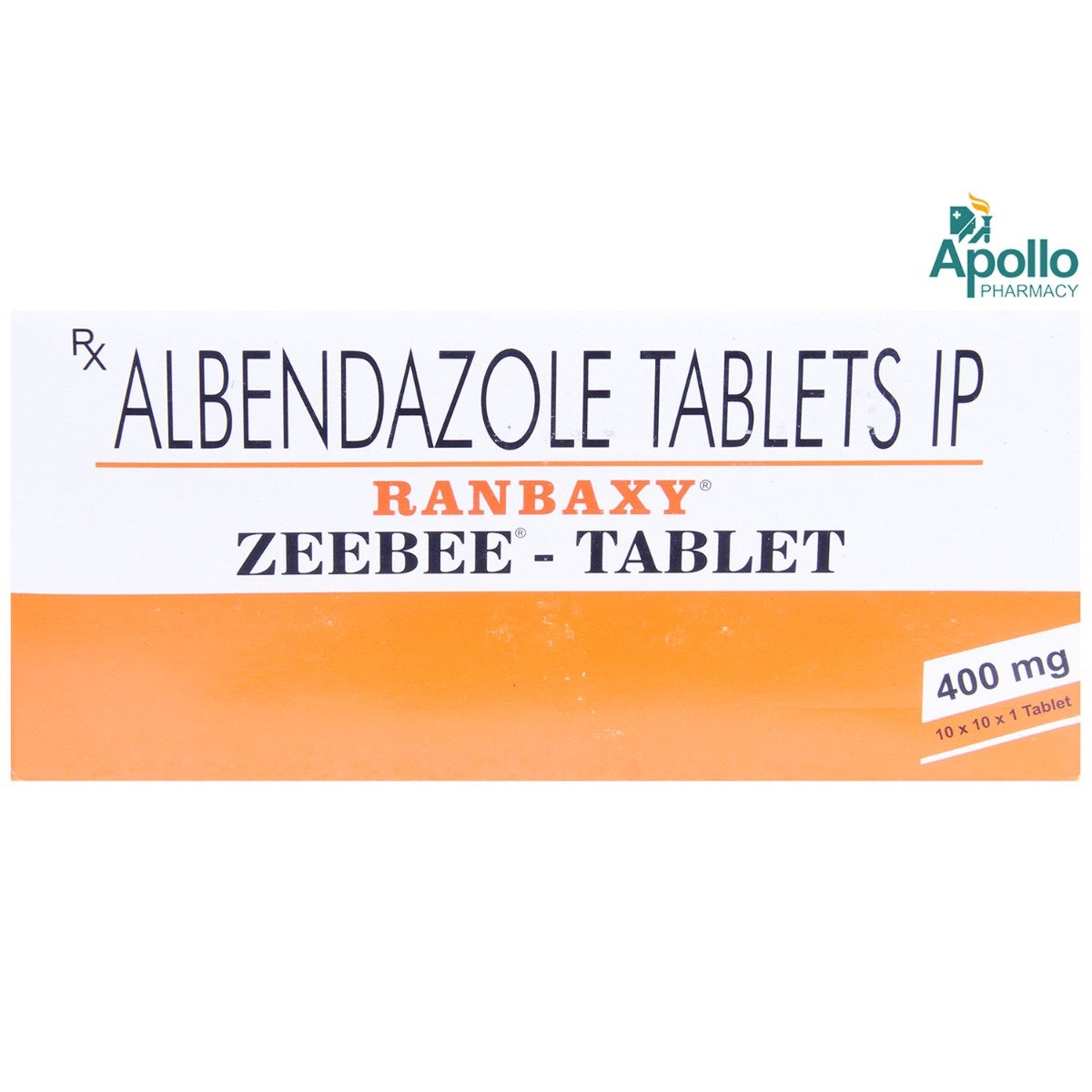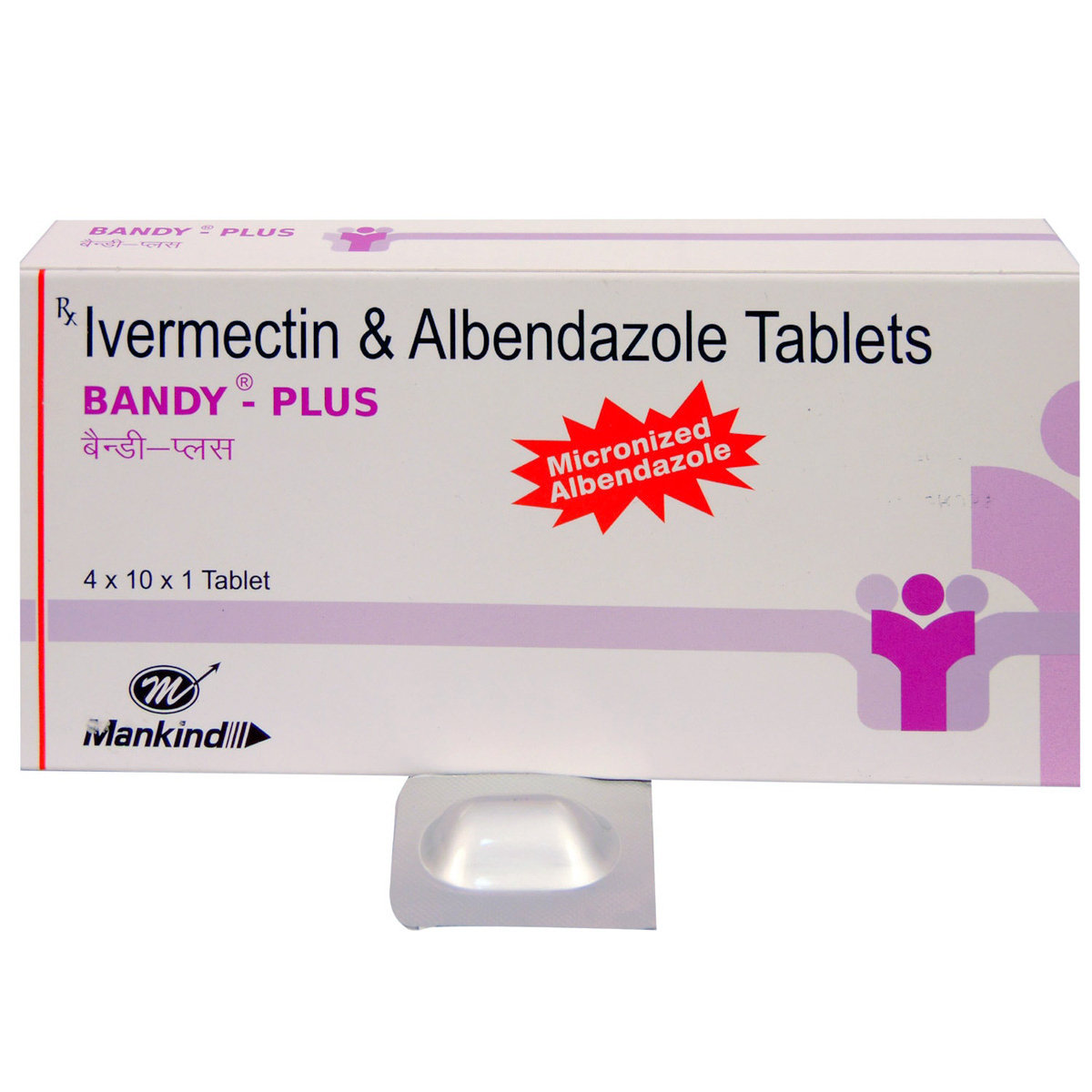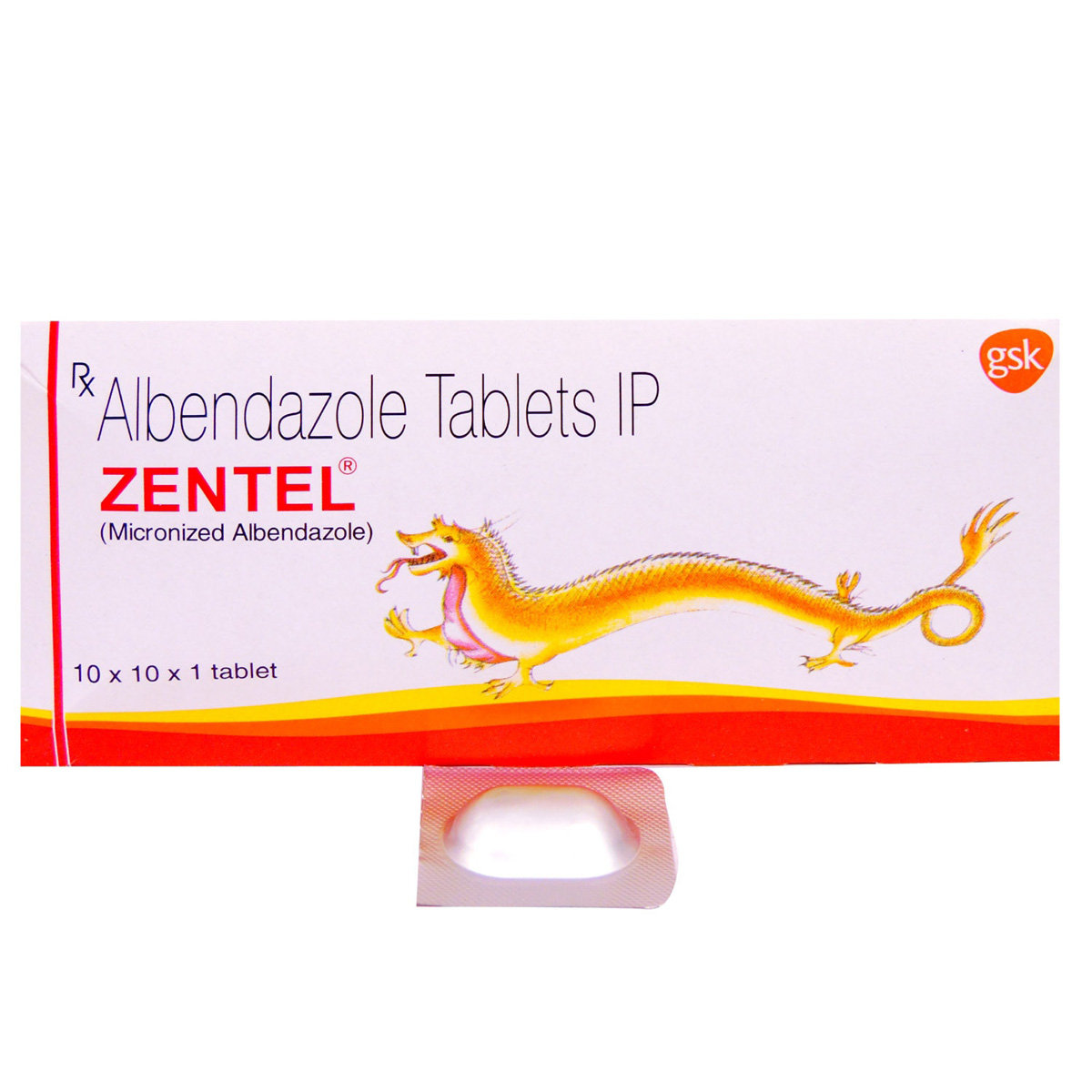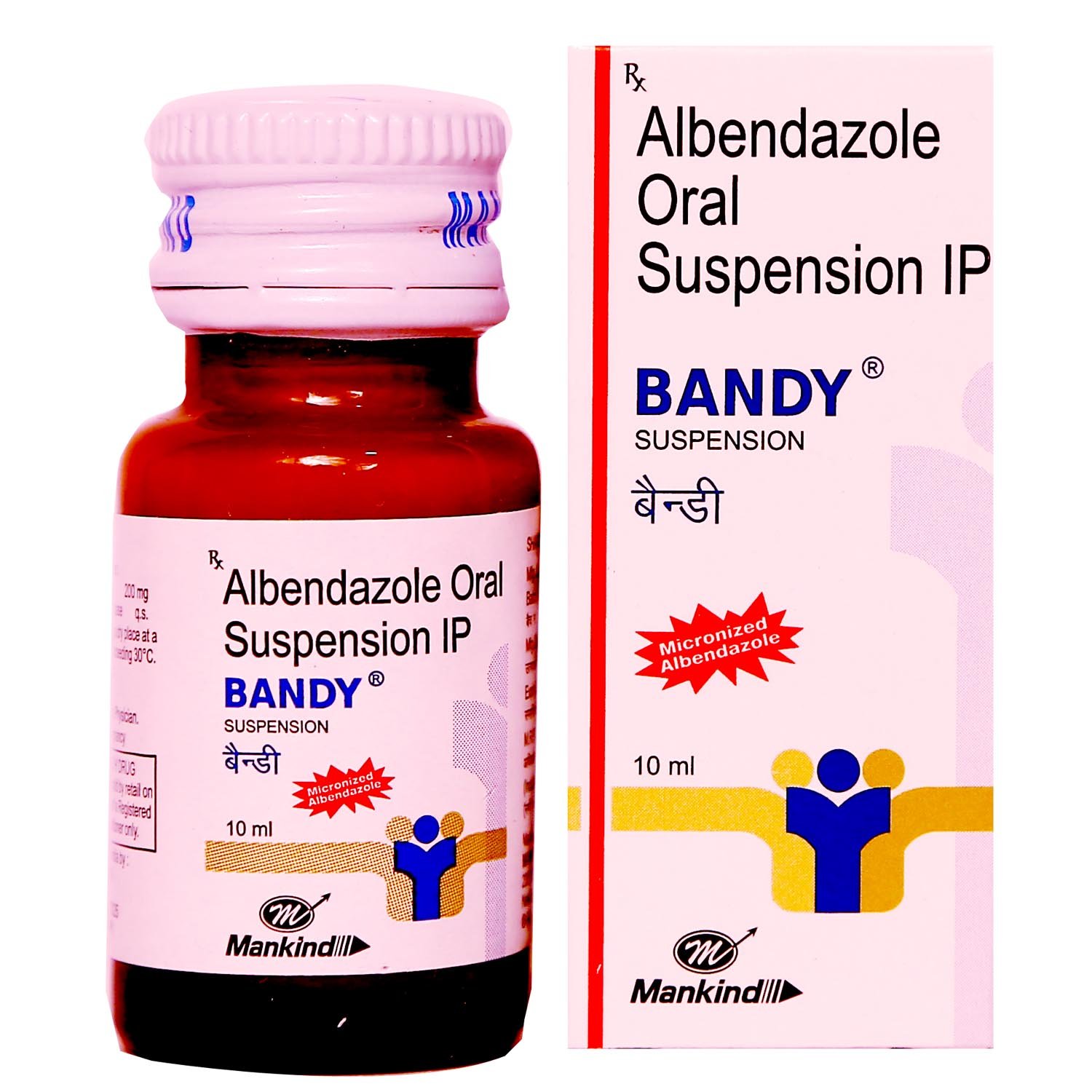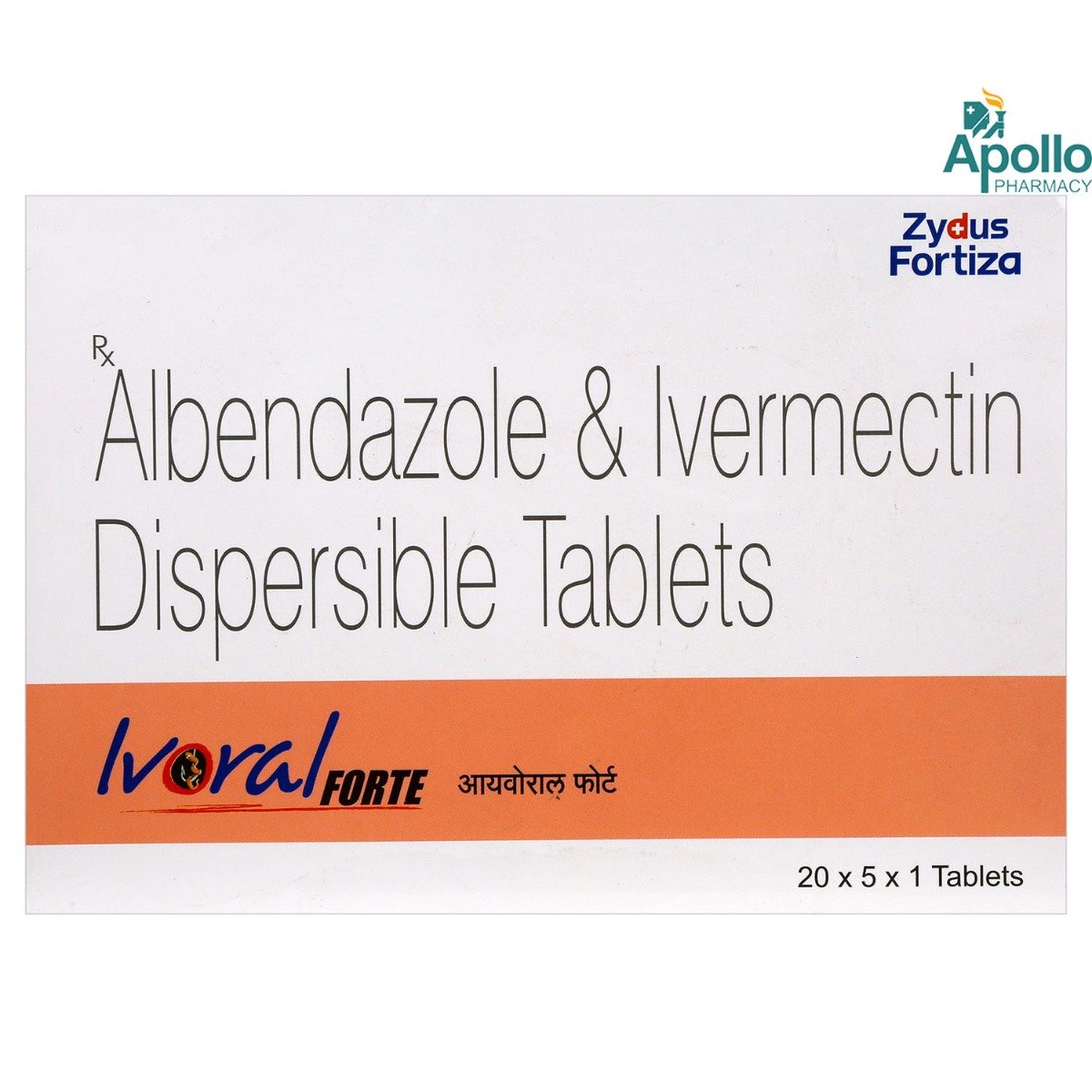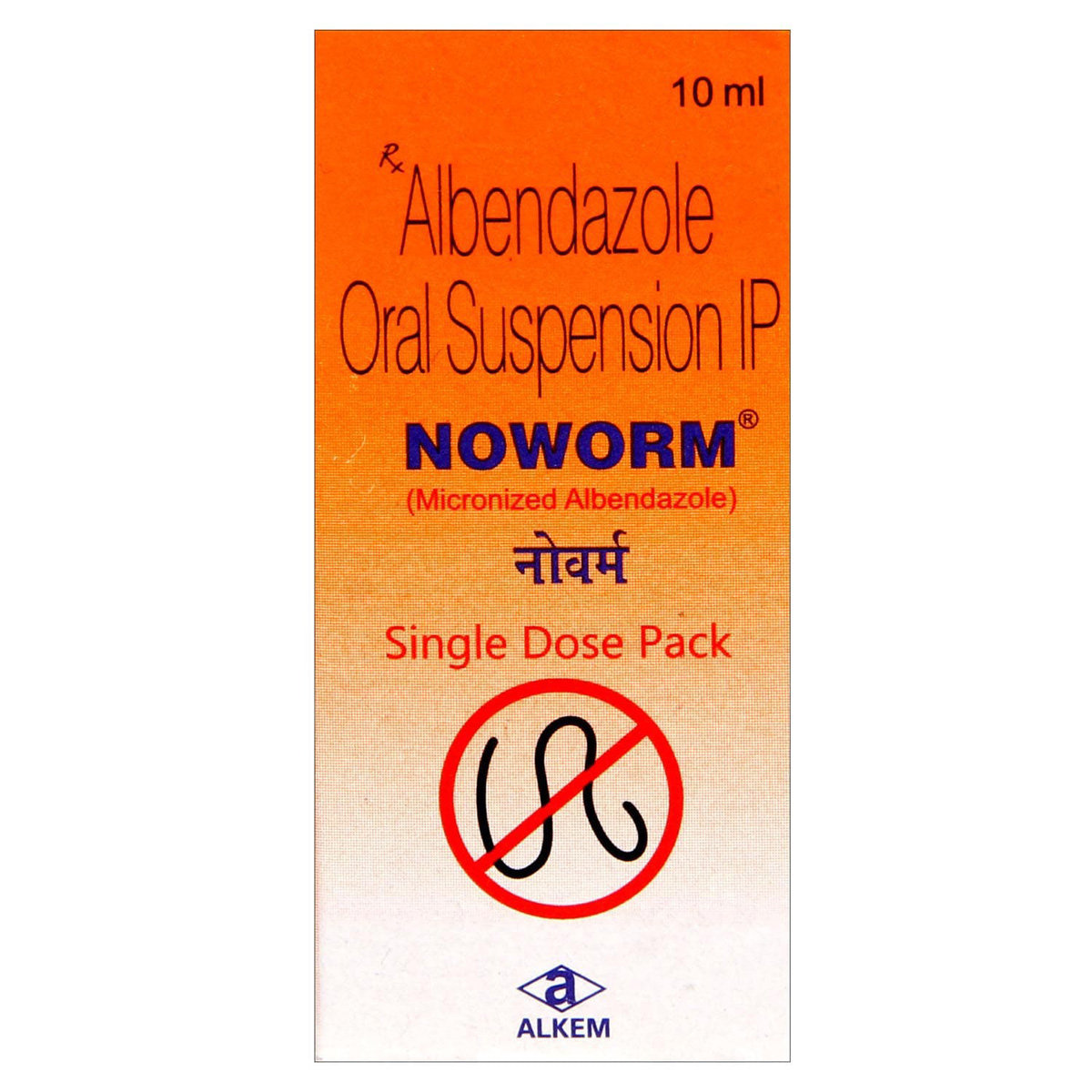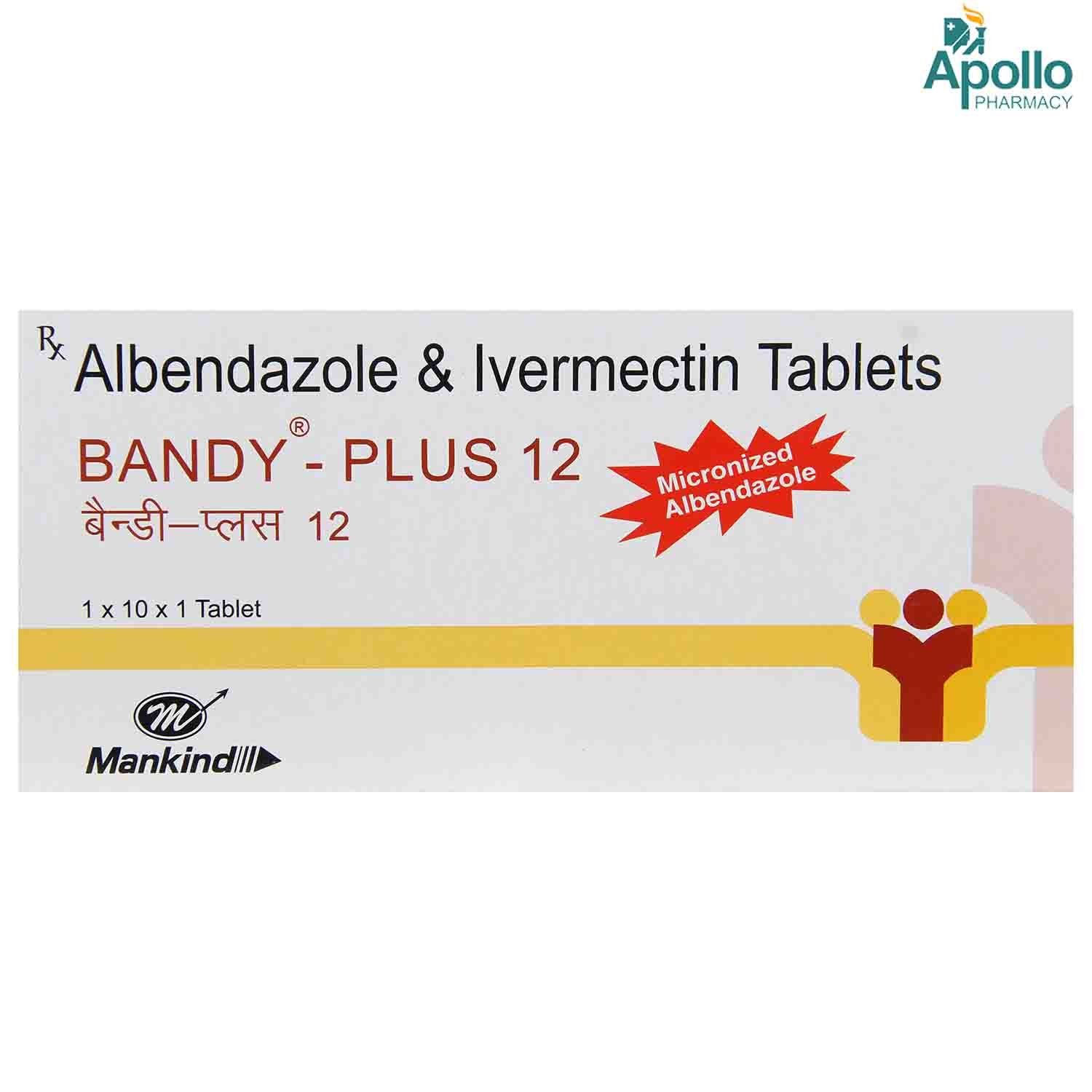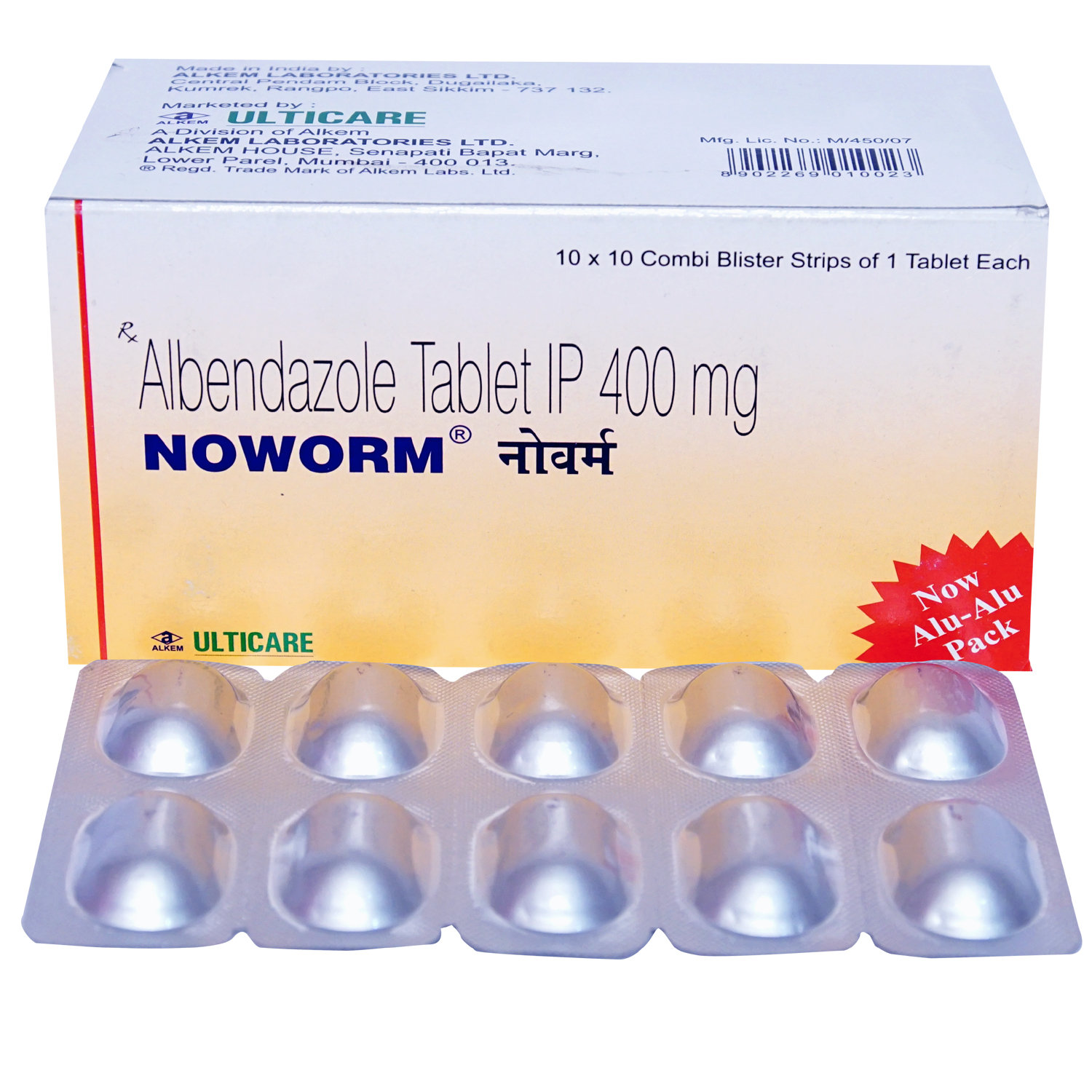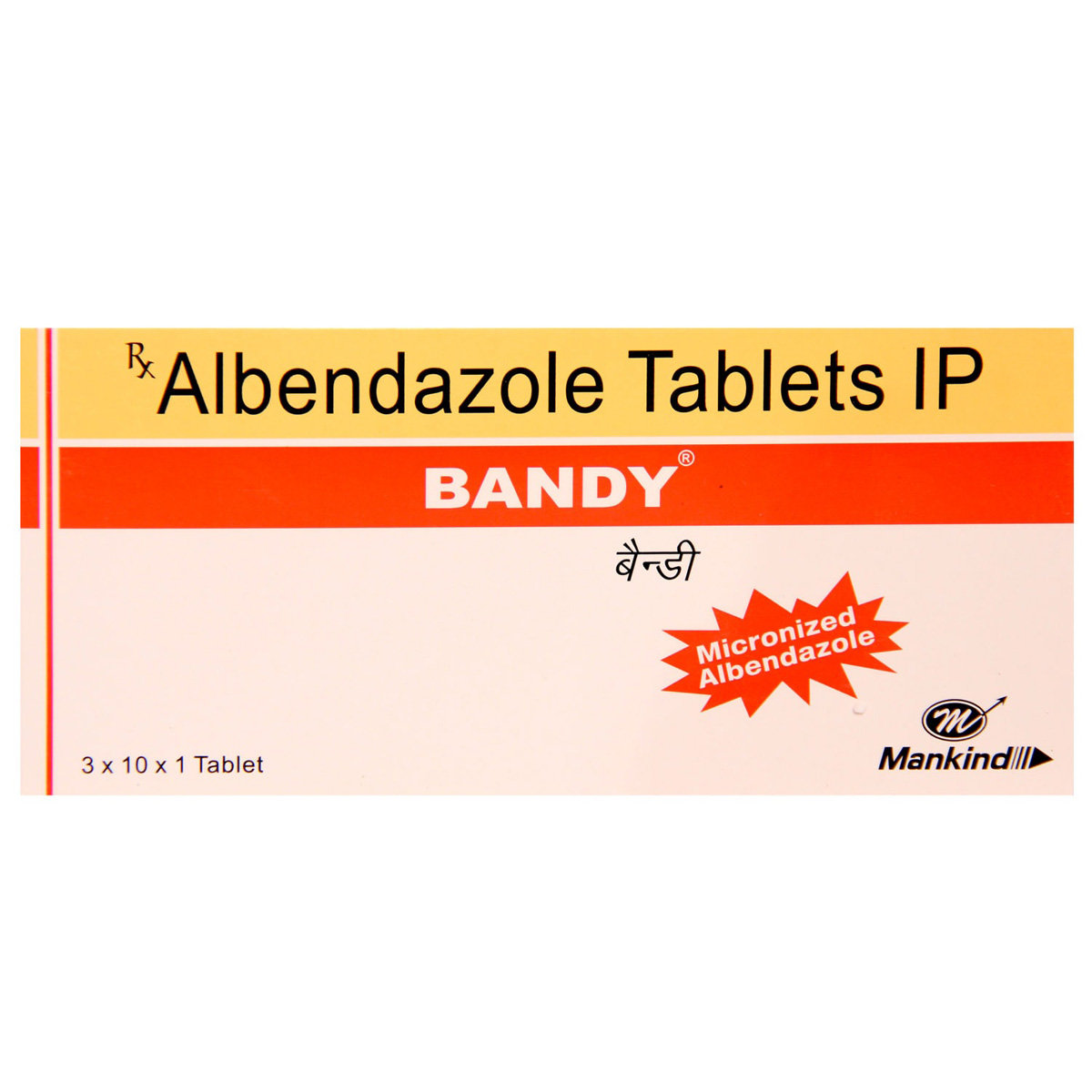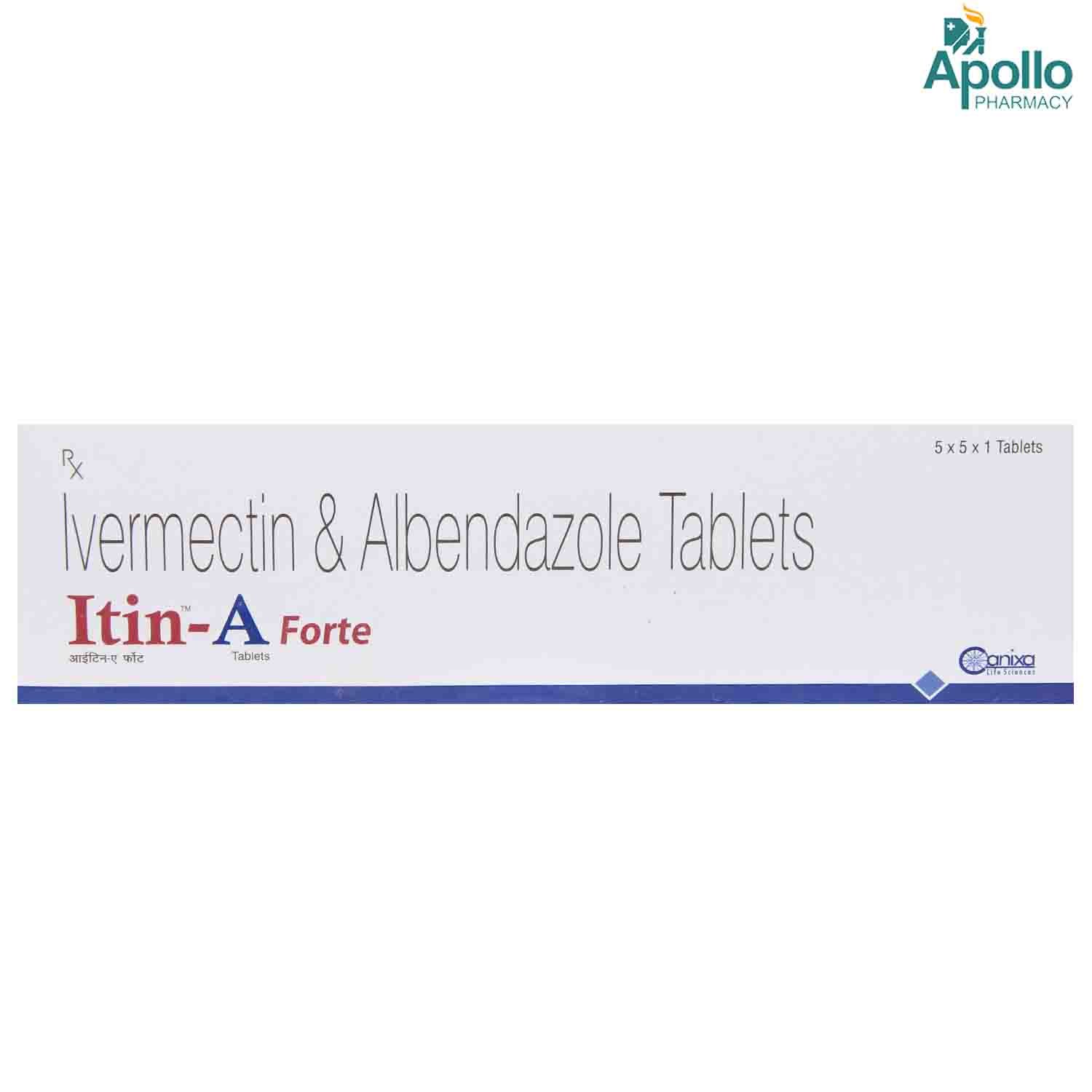Albendazole
About Albendazole
Albendazole belongs to a group of drugs called 'anthelmintic' used to treat parasitic worm infections, such as neurocysticercosis (an infection caused by the pork tapeworm) and cystic hydatid disease (an infection caused by the dog tapeworm). Additionally, Albendazole is also used to treat infections caused by roundworms, hookworms, threadworms, whipworms, pinworms, flukes, and other parasites.
Albendazole contains 'Albendazole', which works by inhibiting tubulin polymerisation. This causes metabolic disruption and energy depletion in the parasite, which leads to its immobilisation. Thereby, Albendazole kills the susceptible helminth and treats the infection.
Take Albendazole as prescribed by your doctor. You are advised to take Albendazole for as long as your doctor has prescribed it for you, depending on your medical condition. You may experience certain common side effects, such as stomach pain, nausea, vomiting, headache, and dizziness, in some cases. Most of these side effects do not require medical attention and will resolve gradually over time. However, you are advised to talk to your doctor if you experience these side effects persistently.
Albendazole may increase the chances of getting an infection, so it is advisable to maintain proper hygiene and try to avoid contact with people who have infections, the flu, or colds. Consult your doctor if you notice unusual bleeding or bruising, as you may bleed or bruise easily while taking Albendazole. Do not take Albendazole if you are pregnant or planning for pregnancy, as it may cause fetal harm. Do not breastfeed during and for a minimum of 5 days after treatment with Albendazole. Albendazole may cause dizziness; therefore, exercise caution while driving. Albendazole can be given to children if prescribed by the doctor. Keep your doctor informed about your health condition and any medications you are taking to help rule out any potential side effects.
Uses of Albendazole
• Treatment of intestinal infections: Albendazole is commonly prescribed to combat various intestinal worm infections, such as those caused by roundworms, tapeworms and hookworms.
• Management of strongyloidiasis: Albendazole effectively treats strongyloidiasis, an infection caused by the Strongyloides stercoralis parasite.
• Control of neurocysticercosis: Albendazole helps to manage neurocysticercosis, a condition caused by pork tapeworm larvae affecting the central nervous system.
• Prevention of re-infection: Albendazole can be prescribed to help prevent re-infection with certain parasites, particularly in areas where they are common.
• Support in mixed infections: Albendazole effectively treats mixed parasitic infections, covering a broader spectrum of helminth infections.
Medicinal Benefits
Albendazole belongs to a group of medicines called anthelmintics, used to treat worm infections such as neurocysticercosis (infection caused by pork tapeworm) and cystic hydatid disease (infection caused by dog tapeworm). Albendazole is also used to treat infections caused by roundworms, hookworms, threadworms, whipworms, pinworms, flukes, and other parasites. Albendazole is a broad-spectrum anthelmintic drug which is highly effective against a wide range of intestinal helminths, including cestodes, nematodes, and trematodes. It is also effective against tissue helminth infections like cutaneous larva migrans (parasitic skin infections). Albendazole exhibits ovicidal, larvicidal, and vermicidal activity. Albendazole inhibits tubulin polymerisation, which causes metabolic disruption and energy depletion in the parasite. This leads to the immobilisation of the parasite. Thereby, Albendazole kills the susceptible helminth and treats the infection.
Directions for Use
- Albendazole can be taken with or without food, as advised by your doctor.
- Your doctor will determine the dosage and timing of this medication based on your medical condition.
- Swallow Albendazole as a whole with a glass of water.
- Do not crush or chew this medication.
Storage
Side Effects of Albendazole
- Stomach pain
- Nausea
- Vomiting
- Headache
- Dizziness
Medicines Containing this Salt
View AllDrug Warnings
Do not take Albendazole if you are allergic to any of its contents. Albendazole may cause bone marrow suppression, aplastic anaemia, and agranulocytosis. Inform your doctor if you have/had liver disease; if you have any surgery, including dental surgery. Consult your doctor immediately if you experience seizures, vomiting, headache, extreme tiredness, or behaviour changes while taking Albendazole. Regular blood cell count and liver function monitoring are advised during treatment with Albendazole. Albendazole may increase the chances of getting an infection; maintain proper hygiene and try to stay away from people with infections, the flu, or a cold. Consult your doctor if you notice unusual bleeding or bruising, as you may bleed or bruise easily while taking Albendazole. Do not take Albendazole if you are pregnant or planning for pregnancy, as it may cause fetal harm. Do not breastfeed during and for a minimum of 5 days after treatment with Albendazole. Albendazole may cause dizziness, so be cautious while driving. Albendazole can be given to children if prescribed by the doctor.
Drug Interactions
Drug-Drug Interactions: Albendazole may interact with anthelmintics (praziquantel), corticosteroids (dexamethasone), antacids (cimetidine), and anti-asthma medications (theophylline).
Drug-Food Interactions: No interactions found/established.
Drug-Disease Interactions: Inform your doctor if you have myelosuppression (bone marrow suppression), hepatobiliary dysfunction (liver and biliary disease), neurological disorder, and kidney dysfunction.
Drug-Drug Interactions Checker List:
Safety Advice

Alcohol
cautionIt is unknown whether alcohol interacts with Albendazole. Please consult your doctor.

Pregnancy
unsafeAlbendazole belongs to pregnancy category C. Do not take Albendazole if you are pregnant or planning for pregnancy, as it may cause fetal harm. Please consult your doctor if you have any concerns regarding this.

Breast Feeding
unsafeDo not breastfeed during and for a minimum of 5 days after treatment with Albendazole. Please consult your doctor if you have any concerns regarding this.

Driving
cautionAlbendazole may cause dizziness. Do not drive or operate machinery unless you are alert.

Liver
unsafeDose adjustment may be needed in patients with liver impairment. Please consult your doctor if you have a liver impairment or any concerns regarding this.

Kidney
cautionDose adjustment may be needed in patients with kidney impairment. Please consult your doctor if you have kidney impairment or any concerns regarding this.

Children
safe if prescribedAlbendazole can be given to children if prescribed by the doctor. Please consult your doctor. Your doctor will prescribe the dose of this medicine based on the age and body weight of your child.
Habit Forming
Diet & Lifestyle Advise
- Regularly wash your hands with soap and water, especially after using the toilet and while eating.
- Avoid eating raw fish and meat.
- Thoroughly cook meat before eating.
- Wash all fruits and vegetables properly before consuming.
- Wash or reheat food that has been around for a long time.
- Avoid contact with soil that may be contaminated with faeces.
- Avoid foods that have been left open in the market, as they may be contaminated.
- Drink boiled and purified water.
Special Advise
- Regular blood cell count and liver function monitoring are advised during treatment with Albendazole.
- Albendazole might increase the chances of getting an infection; maintain proper hygiene and try to stay away from people with infections, flu, or colds.
- Consult your doctor if you notice unusual bleeding or bruising, as you may bleed or bruise easily while taking Albendazole.
- Albendazole will not treat viral infections, such as the flu or common cold.
Patients Concern
Disease/Condition Glossary
Parasitic worm infections: Parasitic worms are also called intestinal worms or helminths. They live in and feed on the hosts, leading to weakness and diseases. Common types of intestinal worms are roundworms and flatworms, such as tapeworms and flukes. Worm infections could occur due to consumption of contaminated water, food, or soil, contact with contaminated faeces, poor sanitisation, and poor hygiene. Symptoms of worm infections include abdominal pain, diarrhoea, nausea, vomiting, gas, bloating, fatigue, unexplained weight loss, and dysentery (bloody stools).
FAQs
Albendazole is used to treat parasite worm infections like neurocysticercosis (infection caused by pork tapeworm) and cystic hydatid disease (infection caused by dog tapeworm). Additionally, it is also used to treat infections caused by roundworms, hookworms, threadworms, whipworms, pinworms, flukes, and other parasites.
Albendazole causes metabolic disruption and energy depletion in the parasite, which leads to its immobilisation. Thereby, Albendazole kills the susceptible helminth and treats the infection.
For neurocysticercosis, Albendazole is usually prescribed for 8-30 days. For cystic hydatid disease, Albendazole is generally prescribed for 28 days, followed by a 14-day break, and repeated for a total of 3 cycles.
Do not discontinue Albendazole without consulting your doctor. To treat your condition effectively, continue taking Albendazole for as long as prescribed. Do not hesitate to consult your doctor if you experience any difficulties while taking Albendazole.
You are recommended to avoid planning for pregnancy while taking Albendazole as it may cause fetal harm. A pregnancy test should be done before starting the treatment with Albendazole, and women must use effective birth-control while taking Albendazole and for at least 1 month after cessation of therapy.
Regular monitoring of blood count at the beginning of each cycle of therapy and every 2 weeks while taking Albendazole is advised for all patients. Treatment with Albendazole should be discontinued if a significant decrease in blood cell count is observed.
Treatment with Albendazole has been associated with mild to moderate elevations of liver enzymes. These elevations generally return to normal upon discontinuation of Albendazole. Liver function tests should be performed before each treatment cycle and every 2 weeks during the treatment. Treatment with Albendazole should be discontinued if the liver enzymes exceed twice the upper limit of normal.
Albendazole might increase the chances of getting an infection. Maintain proper hygiene and try to avoid contact with people who have infections, the flu, or a cold.
You may bleed or bruise easily while taking Albendazole. Be cautious while using sharp objects and try to avoid injuries. Consult your doctor if you notice unusual bleeding or bruising.
You are recommended to avoid taking Albendazole if you are allergic to Albendazole or any of its ingredients, if you are pregnant or planning to become pregnant, as it may cause fetal harm.
Albendazole should be used only under doctor’s supervision. Do not self-medicate, as it can cause some severe side effects. Therefore, if you suspect worm infections in your child, please consult a doctor.
Yes, Albendazole can cause diarrhoea as a side effect. In such cases, drink lots of water or other fluids to stay hydrated. However, if diarrhoea persists and you notice any signs of dehydration, such as reduced urination with strong-smelling and dark colored urine, consult your doctor. Do not take any other medications without your doctor’s advice.
No, taking Albendazole in more than the recommended dose will not make it more effective; rather, it can increase the risk of severe side effects and toxicity. If the symptoms are not relieved by the recommended doses, please consult your doctor.
Store Albendazole at room temperature in a cool, dry and dark place. Protect from light. Keep it out of reach of children.
Yes, Albendazole can be taken with or without food or as advised by your doctor. Follow your doctor’s instructions.
The side effects of Albendazole include stomach pain, nausea, vomiting, headache, and dizziness, in some cases. Most of these side effects do not require medical attention and will resolve gradually over time. However, you are advised to talk to your doctor if you experience these side effects persistently.
Yes, Albendazole may interact with praziquantel (an anthelmintic), dexamethasone (a corticosteroid), cimetidine (an antacid), and theophylline (an anti-asthma medication). Therefore, inform your doctor before taking Albendazole with other medicines to avoid possible interactions.

